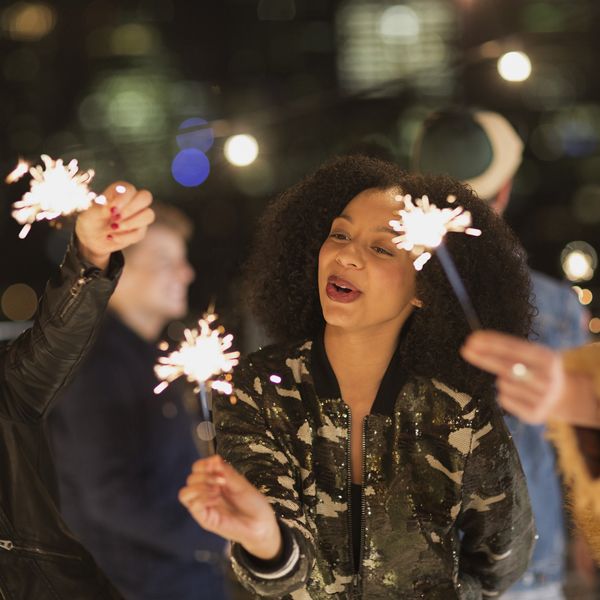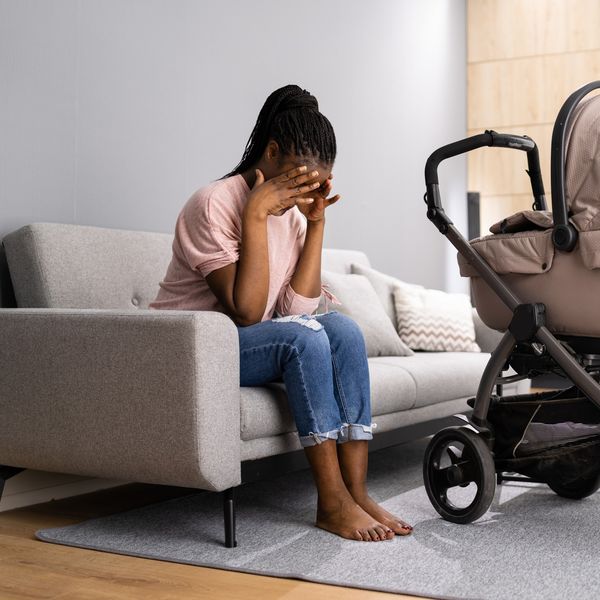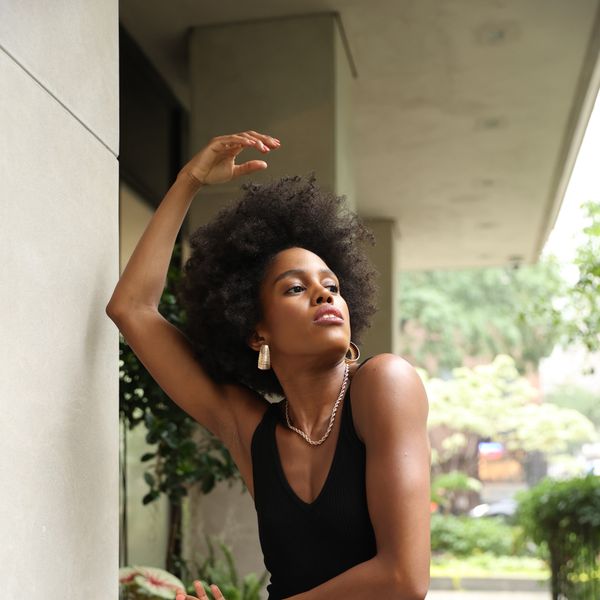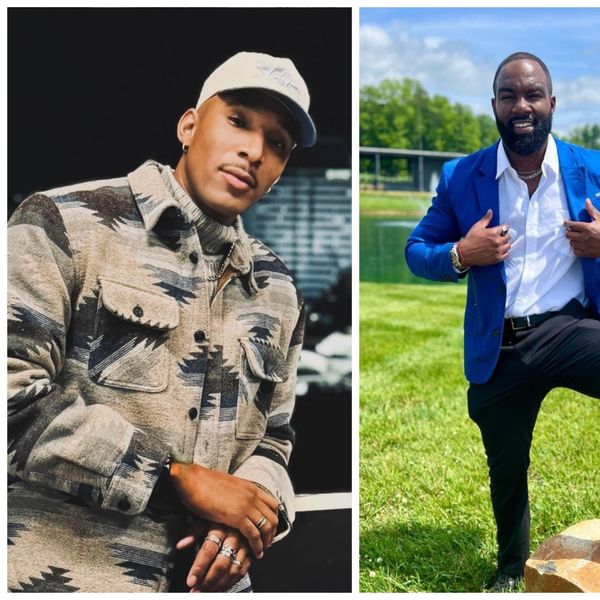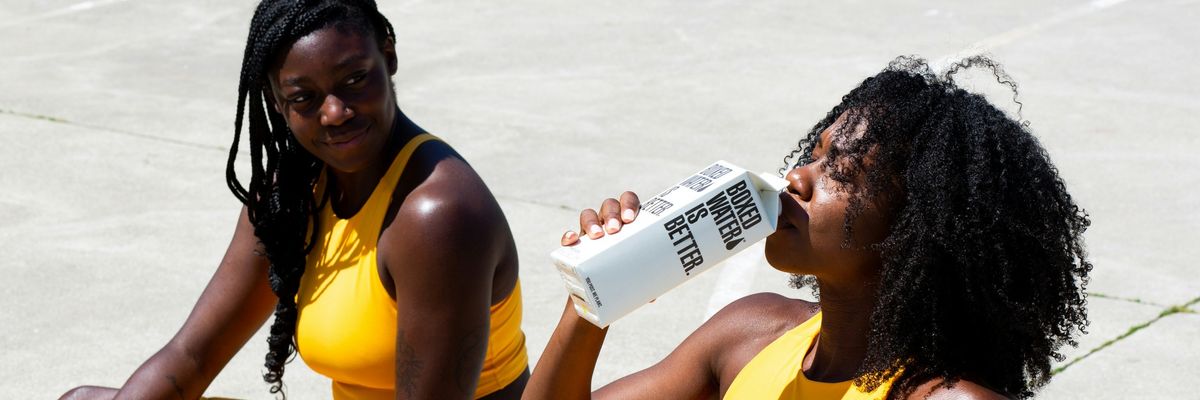We Spoke To 7 Daddy-Daughter Duos About What Being A #GirlDad Truly Means
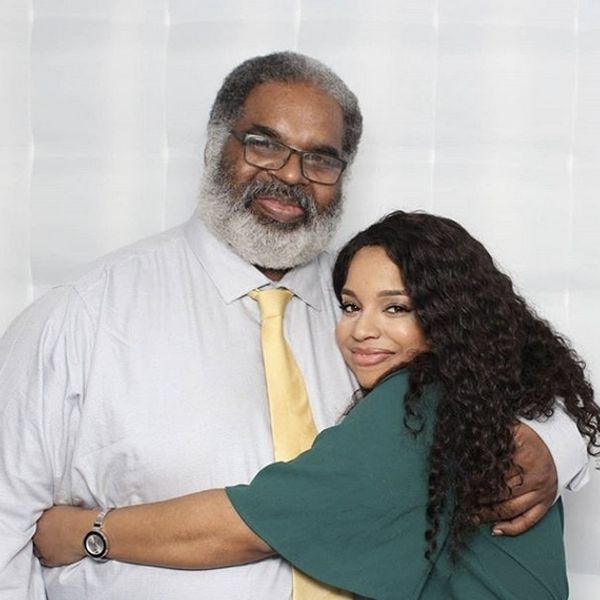
#GirlDad became bigger than ever earlier this year with the tragic death of Kobe Bryant and his 13-year-old daughter Gigi. He left a wife and three other daughters behind, but he didn't carry the title of 'Girl Dad' simply because he had daughters. He was a dedicated mentor, a confidant, and a present father to his girls. Months later, his example has pushed us to really think about what the hashtag really means.
Historically, Black and Brown communities' relation to fatherhood hasn't been the greatest, BUT there are great fathers who break the stereotype and deserve to have a light shined on them. We spoke with solid daddy-daughter duos about the true weight that role carries.
Like the late legend, these dads are setting the standard for Girl Dads and showing us what it truly means.
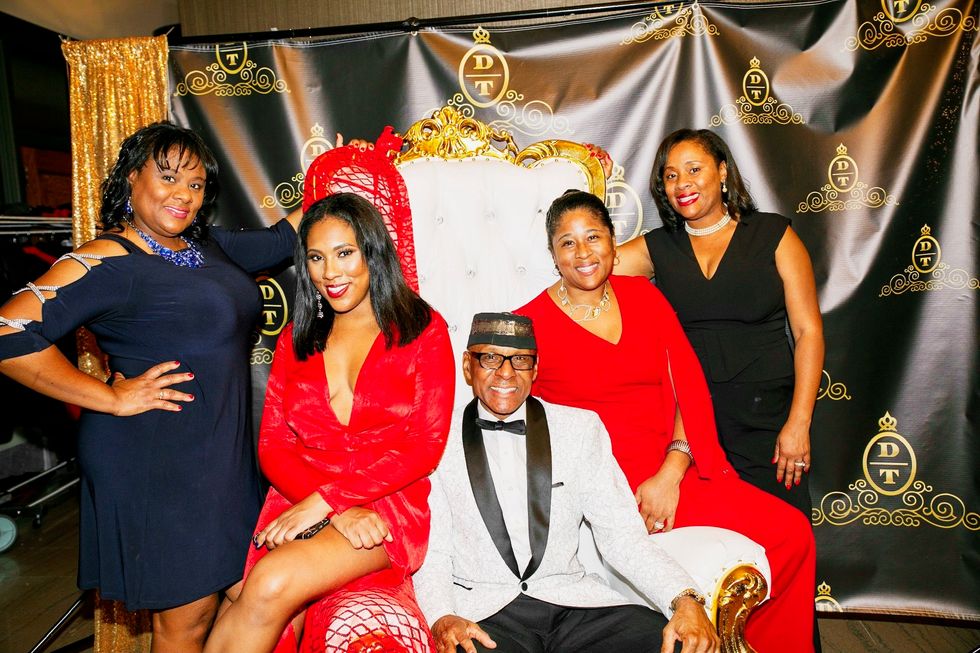
Courtesy of Dontaira Terrell
Dad: Don Terrell
66, Retired from General Motors after 40+ years of service
"The greatest reward of being a Girl Dad and raising four daughters has been watching them grow and matriculate into womanhood. From little-league softball games, Sweet 16s to graduations, and beyond, I was there for every milestone and will continue to do so. Supporting each of them in their endeavors and empowering them along the way has been my greatest reward.
Time flies and watching them learn and absorb knowledge, wisdom, and understanding to become intelligent spiritually grounded women, or as I call them 'Queen Warriors,' is my legacy and has been my greatest achievement as a father.
Unknowingly, in nurturing and championing their well-being, it helped me in many ways throughout my fatherhood journey and this pathway called life. My wife and I didn't have any sons, and people always reminded us of this, but it didn't matter to me because my girls are my everything. I know they will carry the lessons I've taught them from an early age across generations."
Daughter: Dontaira Terrell
34, Editorial Director
"Five years ago, I lost my mother after a sudden car crash while leaving work, which left her hospitalized for 14 months until she eventually succumbed to her injuries. Throughout this entire experience, I gained a deeper appreciation, a greater sense of gratitude and pride that I was chosen to be my dad's baby girl.
I consider my dad as a hero in his own right. When doctors assured him that pulling the life-support plug on his wife of 40 years was the only way to go, he relentlessly stood his ground and insisted it was not an option. With strength and sincerity, he stated, 'You may have seen a thousand cases like this, but my wife is rare. I don't have a thousand wives, and my four daughters don't have a thousand mothers.'
At that moment, my dad taught me the essence of unconditional love and the power to fight for what is precious to you. He is the ideal example and blueprint of my future husband and a true testament of self-sacrificing love. I believe parents should inspire to aspire, and in my quest to build and continue the family legacy, it is exactly what I hope to achieve.
He's the best grandad to his grandchildren, listener, provider, and mentor. But most importantly, he is always there. He is a constant force in my life that I can depend on, no matter what. From our Saturday morning daddy-daughter adventures growing up to our family dinners and road trips, I am grateful for that foundation that has shaped me into who I am today and the woman I am still becoming."
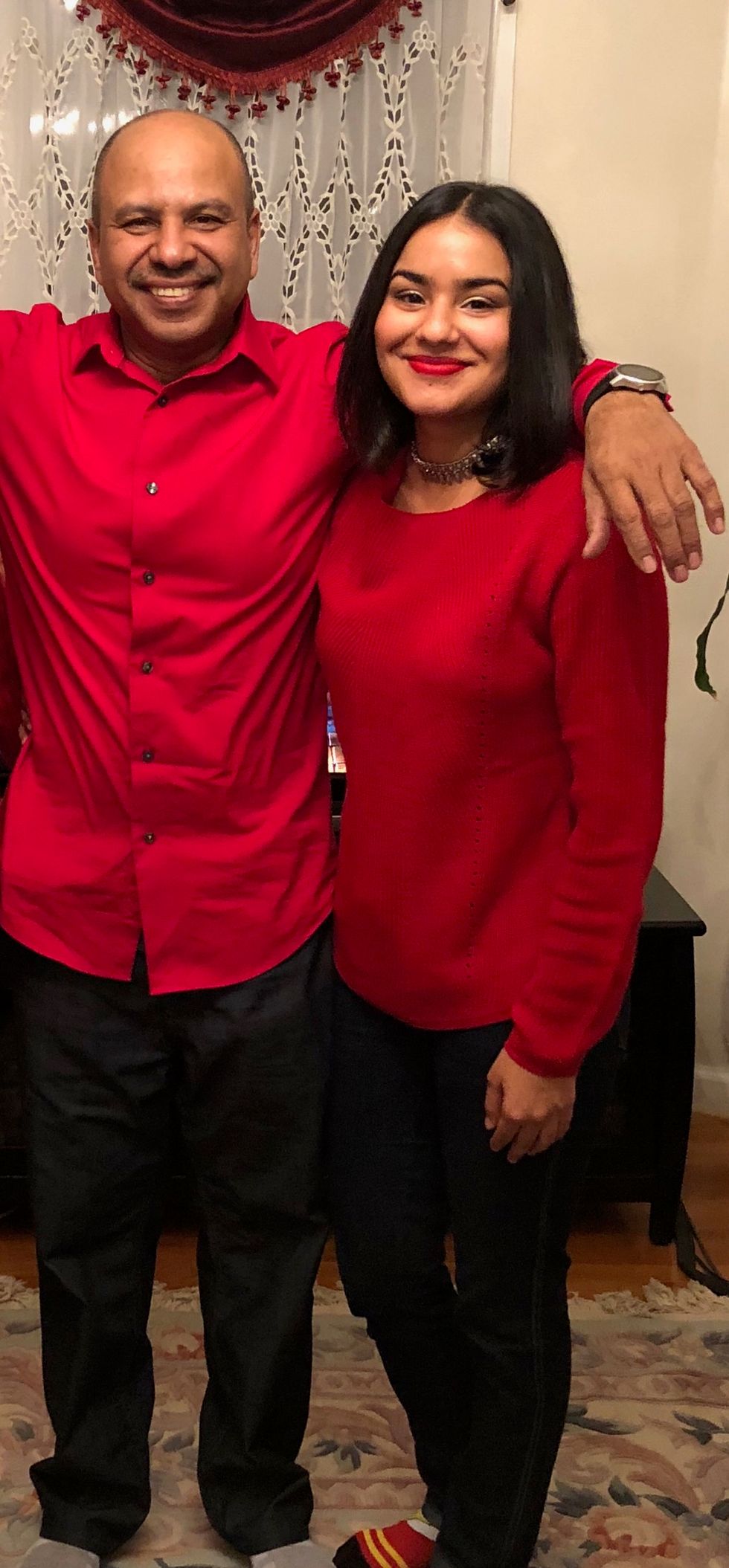
Courtesy of Christina Singh
Dad: Satro Singh
57, District Manager
"The greatest reward of being a Girl Dad is having joy in watching my daughter grow up. I coached and raised my daughter to be great at everything she puts her mind to. I remind her daily to be a strong woman and to have a kind heart, even if the world is unkind to her. Her accomplishments and resilience makes me a proud #GirlDad."
Daughter: Christina Singh
30, Teacher
"I am proud to be my dad's daughter because I've observed his strength and flexibility to provide for our family. Since I was a young child, my dad worked multiple jobs to make sure my family was taken care of. As I got older, I became more appreciative of the sacrifices he had to make in order for our family to persevere. I am forever grateful and will always thank him for being the true definition of a dad."
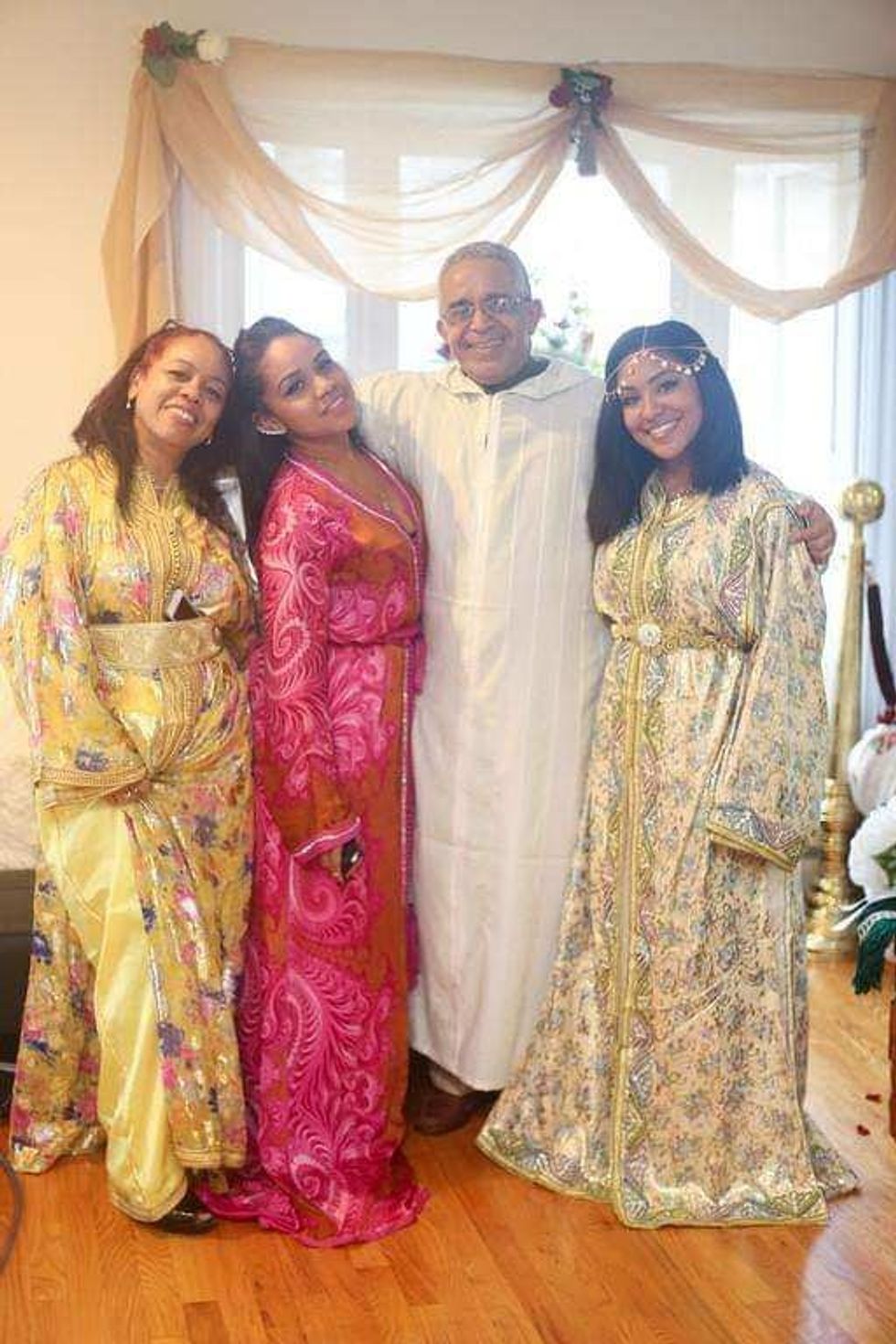
Hala Maroc
Dad: Nagy
65, Auditor
"Having a girl is definitely a big reward. Being a father presented me [with] whole different experiences and perspectives I could never get before that as a man. It even allowed me to understand and learn about the strength of a women.
As a father, having to experience mixed emotions (especially when my daughter started to develop her own path and career) was a growing process. Imagine experiencing nonstop happiness and anxiety in all the same exact moments.
She has a different path than the one I know or the one I imagined for her. Especially when it is a path full of challenges, that she refuses to give up on... I can't hold her hand but that makes me love and admire her even more.
I'm a joyful dad to a joyful daughter. That's all I can ask for!"
Daughter: Hala Maroc
28, Personality/ Wellness Advocate- TheBadassBootcamp.com
"I've always been a Daddy's girl. Anyone who knows my Dad would say he's a REAL ONE. I get my comedic timing, young spirit, and lack of patience from him.
He always taught me to be independent and to just go for it. But thinking back, there have been a few times when I really thought I was doing big things and had my big girl pants on... come to find out, he was secretly holding my hand the whole time!
Some of my most vivid memories would have to be in kindergarten when I'd fall asleep halfway through doing my homework and wake up to it finished! Or at three- or four-years-old when he put me on his lap to 'drive the car' knowing I wouldn't notice his knee doing all the actual steering. Or when he used to have me go across the street to a neighborhood bakery to pick up sweets and practice counting money and one day I realized he was watching me from our fourth floor apartment window the whole time just in case and even may have called the bakery to give them a heads up ahead of time.
I find him trying to still do that in my adult life sometimes and [he] may regret raising such an independent woman who GOT THIS! But I want to reassure him that everything I've ever accomplished stems from the confidence he instilled in me along the way."
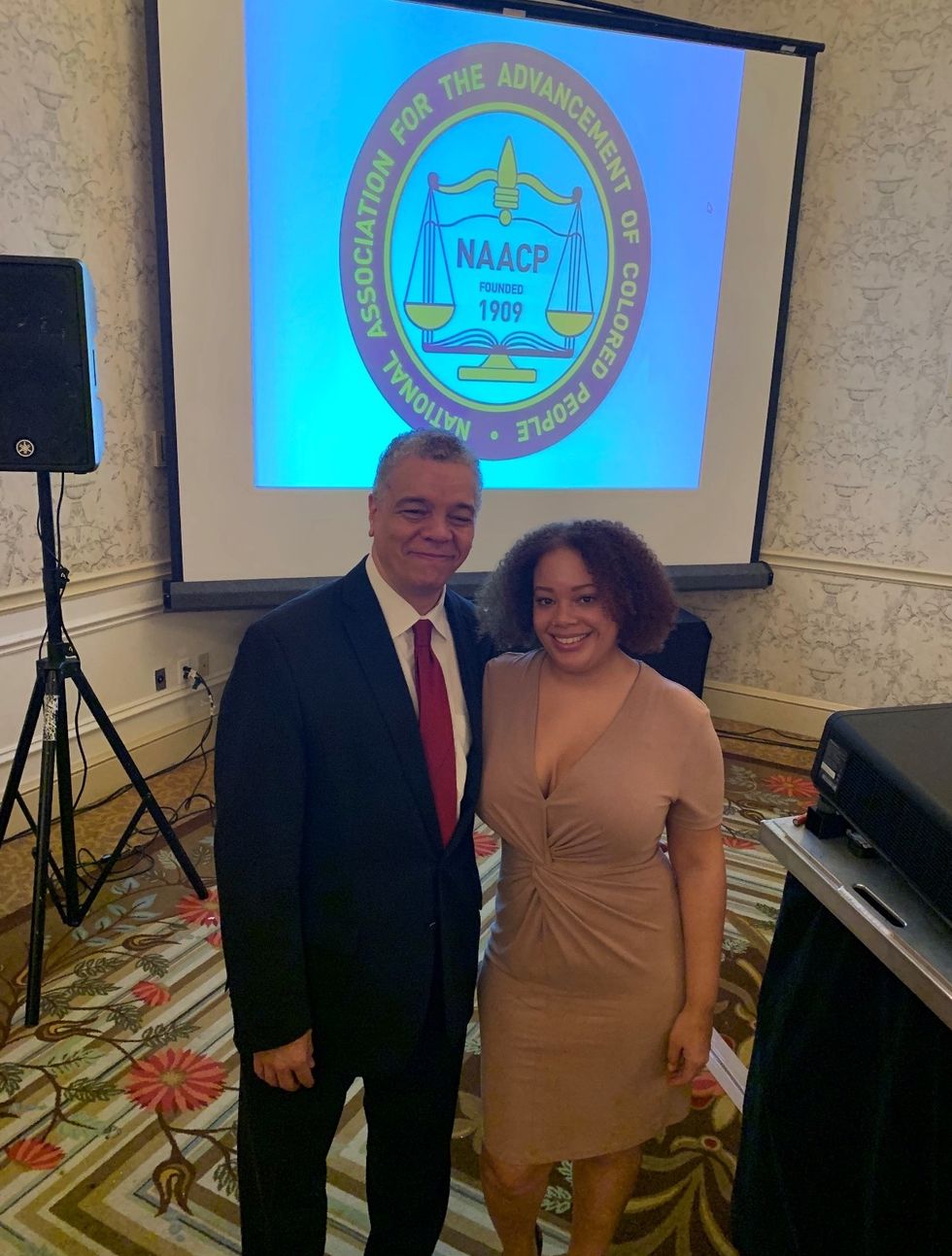
Courtesy of Jelani Addams
Dad: David Addams
63, Executive Director
"My greatest reward being a Girl Dad is watching my girl grow into her power and potential professionally and socially. As early as primary school, my daughter was empowered to speak her mind and seek her solutions.
Providing the opportunity to become a peer educator in high school with NYCLU solidified her role as a spokesperson and leader. I am so proud of what she has done about the issues she cares about and how her writing has manifested her sharp mind and fierce dedication to justice and fairness."
Daughter: Jelani Addams Rosa
30, Senior Editor
"I've always been a very proud daughter. For as long as I can remember, I've always been a Daddy's girl and loved hanging out with him and picking his brain. To this day, he's my favorite person to talk about politics and current events with, I respect his opinion and point of view so much.
I can think of so many moments where I was proud to call him my dad, but the most recent is when he was honored by the NAACP for his work in the community. I know all of the amazing ways my dad has shown up for me—30 years of nonstop unconditional support and love.
I'm always floored when I think about the fact that in between making the time to be an amazing father, he's always found the time to be an amazing person, to think about people outside of his immediate circle, and come up with concrete ways he can be part of the solution. It's always been important, but in times like this it's invaluable to have a David on your team, I'm just glad I get to call him Dad."
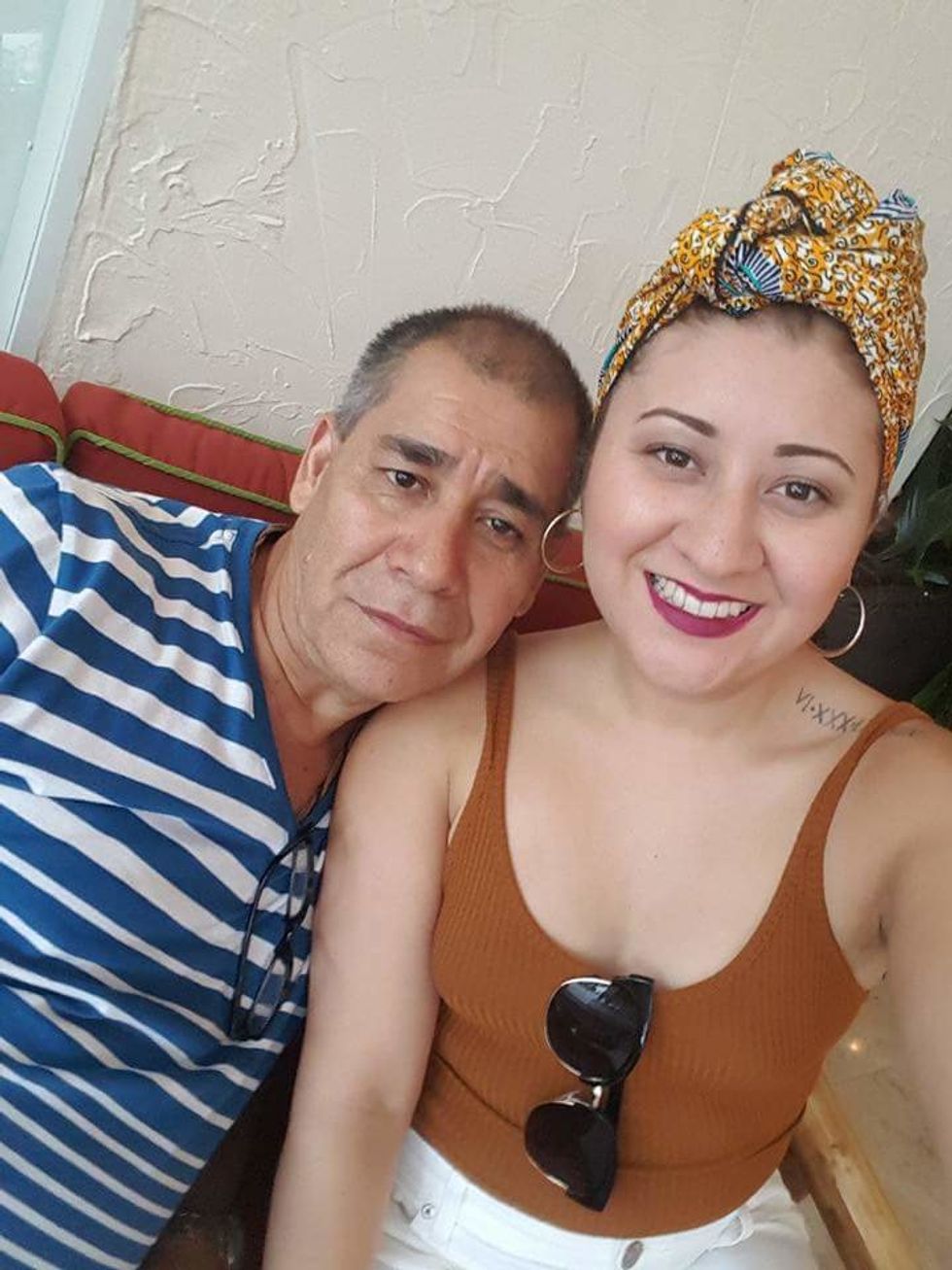
Courtesy of Kim Cortes
Dad: Angel Cortes
66, Retired Maintenance Worker
"My biggest reward of being a Girl Dad has been having a daughter that I could be affectionate with and loving. Someone who allowed me to loosen up and brought out a softer side I didn't know I had."
Daughter: Kim Cortes
30, Marketing Manager
"My dad has always been a hero to me. He was an immigrant from Central America who came here with a dream and hopes to create a better future for his wife and his children. After years of working and sacrifice, he finally paid off our home. He was the first homeowner in his family and did it all on a maintenance man salary."
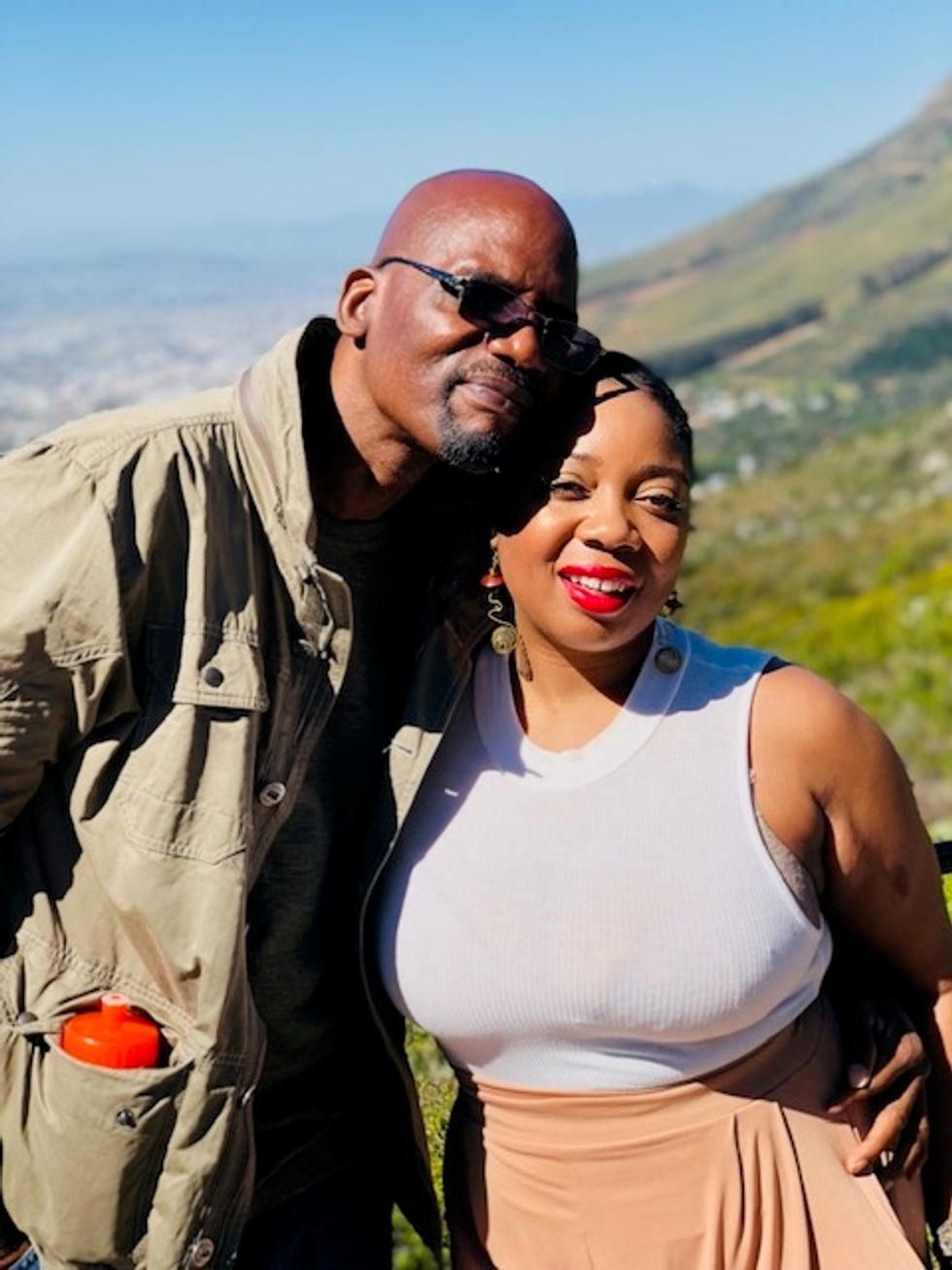
Courtesy of Brittiany Cierra Taylor
Dad: Derek Taylor Sr.
62, Real Estate Entrepreneur
"My greatest reward being a girl dad is the sound of my daughter's laughter."
Daughter: Brittiany Cierra Taylor
33, Sr. Manager Audience Development
"I grew up a Daddy's girl and then our relationship shifted in my early twenties. I think I'm most proud of the effort I've seen him make in the last five years to be my superhero once again while we both give each other the grace to grow.
I think as a Daddy's girl, you grow up thinking your dad's a superhero and when you find out he's not perfect, you're disappointed à la Molly in Insecure. Likewise, I think he always thought I was pretty close to perfect, and when he found out I wasn't, the same.
We were in business together which adds another layer of static. Since then, he's been super patient, willing to listen (we are both stubborn), and really just focused on my happiness. I first saw this shift when I moved to New York five years ago and then two years ago when my little brother passed. In those two years, we've traveled out of the country together (my friends still call him 'trip dad'), he's taught me new sides of the family business and I've actually been staying with him since COVID."
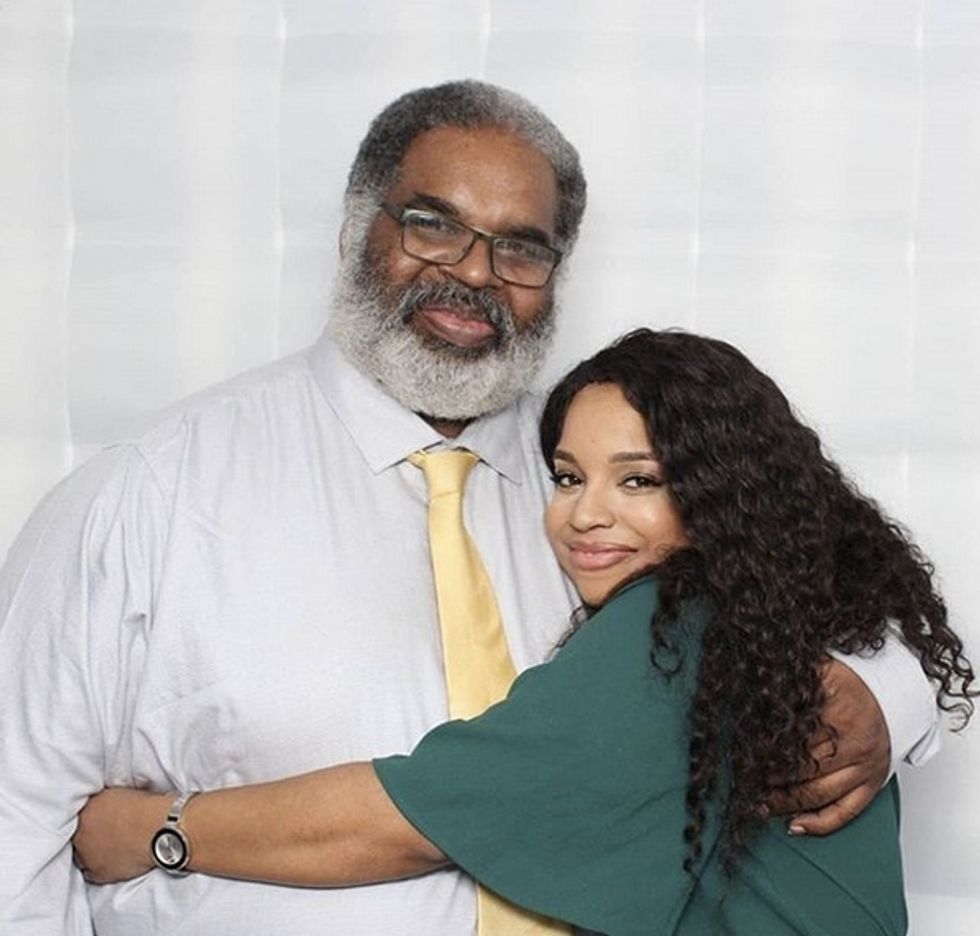
Courtesy of Soraya Joseph
Dad: Larry Joseph
63, Truck Driver
"Daddy is always right. I'm never wrong! (laughs). If her mother and I disagreed, she was always on my side, and ran to my defense. I'm serious!
True story—before her, I was afraid to even have a girl. But when I had her, it changed my life. I even wish I had more girls, you know? Girls are so special and fragile, and you have to really spoil them. And when they respect you (in return), it makes everything more worth it.
The feeling of having a daughter is indescribable. Because with a boy, even though you show them affection, you raise them to be tough. But with the girl, it's like, women are naturally strong, but also fragile, so you're afraid to do anything so you don't hurt them.
At the end of the day, a dad always thinks the girl is for them. The boy is for mom. We're sensible with our sons, but very sensitive about our girls. And very defensive and overprotective too. With limits, of course. It's charming. Having a daughter is the greatest reward. Especially when they're getting old, and they still call you 'Daddy.'"
Daughter: Soraya Joseph
31, Digital Content Director
"When I was younger, I used to be painfully jealous and territorial of my dad's paternal-like efforts outside of my brother and me. Like, I didn't mind if he helped other people, but I didn't want him helping them 'like a dad,' if that makes sense (laughs). I'm a mess, I know."
As I got older, I grew to admire my father's ability to impart wisdom and advice onto others and make himself readily available to the figuratively fatherless.
Once, I even witnessed my dad be late for work, because while having brunch at our favorite diner, a young waiter actually sat down mid-shift at our table, completely caught up in a convo with my dad. They spoke for nearly an hour, while I downed three more mimosas at the bar. Because of this, I've dubbed my dad 'the real-life Uncle Phil', since a lot of my friends and my brother's friends enjoy their conversations with him and seek his guidance. To this day, I get a 'What's your dad's number again?' text or a 'Can you ask your dad...' text from friends wanting his take on everything from buying their first car to general life advice.
In the end, I've learned that my father is a better father-figure than most men are fathers. While the younger me used to scold him for his friendliness, the older me loves and is in awe of it. Besides, at the end of the day, everyone knows girls are daddies' worlds. So, if he is a good father-figure, imagine being his actual daughter. He goes harder!"
Featured image courtesy of Soraya Joseph
This Is How To Keep 'Holiday Season Stress' From Infecting Your Relationship
Hmph. Maybe it’s just me, but it seems like there is something really weird happening in the fall season air (because winter doesn’t officially begin until December 21) that cuddle season is in full swing while break-up season is as well. In fact, did you know that break-ups are so popular during the holiday season that December 11 is deemed Break-Up Day?
The reasons why relationships shift around this time vary; however, I did both roll my eyes and chuckle when I read that a very popular one is because it’s an easy way to get out of getting one’s significant other a Christmas present. SMDH.
Anyway, I personally think that the less shallow folks out here may contemplate calling things “quits” or they at least distance themselves a bit from their partner (and what I’m referring to is serious relationships) due to all of the stress and strain that oftentimes comes with the holidays whether it be financial, familial, due to their tight schedules or something else.
Listen, I would hate for you and your man to miss the fun and happiness of experiencing this time of year, all because you are so overwhelmed or irritated that you can’t really enjoy it. That’s why I have a few practical tips for how to avoid allowing the typical holiday season stress from INFECTING your relationship.
Manage Your Expectations
 Giphy
GiphyUnmanaged expectations. If there is a main reason why the holiday season tends to be so stress-filled for so many people, I’d bet good money that this is the cause. And when you’re in a long-term relationship, expectations can manifest themselves in all sorts of cryptic and/or unexpected ways. You might have relatives who assume that you are going to be with them for Thanksgiving or Christmas when you have other plans in mind. You might be thinking that you are going to spend one amount for presents while your man is thinking something totally different. When it comes to scheduling, your signals may be crossed.
And you know what? To all of these scenarios, this is where clear and consistent communication come in. Don’t assume anything. Don’t dictate anything either. From now until New Year’s, mutually decide to check in once a week, just to make sure that you are both on the same page as it relates to the holidays and what you both are thinking will come along with it. The less blindsided you both feel, the less stressed out you will be. Trust me on this.
Set (and Keep) a Budget
 Giphy
GiphyOkay, so I read that last year, 36 percent of Americans incurred some type of holiday-related debt. Hmph. Last year, there was still some sense of normalcy in this country, chile, so I can only imagine what finances are gonna look like over the next several weeks. That said, since I don’t know a lot of people who don’t find being broke stressful, make sure that you and your bae set a budget and then stick to it this year — no ifs, ands or buts.
Because really, y’all — it doesn’t make sense to deplete savings and/or max out credit cards for a few days of giggles only to be damn near losing your mind because you don’t know how to make ends meet come Dr. Martin Luther King, Jr. Day.
And by the way, this tip doesn’t just speak to things like food and gifts; I also mean travel. If it doesn’t make a ton of sense (or cents) to be all over the place this year — DON’T BE.
Keep Matthew 5:37 at the Forefront
 Giphy
GiphyIf off the top of your head, you don’t know what Matthew 5:37 says, no worries, here ya go: “But let your ‘Yes’ be ‘Yes,’ and your ‘No,’ ‘No.’ For whatever is more than these is from the evil one.” That verse right there? Oh, it’s a boundaries lifesaver! I say that because do you see “maybe” or “I’ll think about it” in there? Nope. LOL. It says that you should tell people “yes” or “no” and leave it at that — and that complements Anne Lamott’s quote, “’No’ is a complete sentence” impeccably well. Yeah, you’ve got to remember that anything beyond a yes or no to a request is privileged information; you don’t owe anyone details or an explanation.
Besides, if you are really honest with yourself, when someone asks you something and you give a “Umm, let me think about it” kind of reply, more times than not, you already know what your answer is going to be — so why not let you both off of the hook? Give your response. Commit to that. And let everyone (including yourself) get on with their lives and schedules.
I promise you that when it comes to those holiday parties, you are pissing more folks off by not RSVP’ing or doing so and not showing up than just saying, “Thank you but not this year” off the rip.
Remember That Your Personal Space Is Privilege Not a Right
 Giphy
GiphyA friend of mine recently bought a new house and invited me over to come see it. He’s a single man with no children, so as I was taking in all of the space that he had, especially as I walked through his finished basement, I joked about relatives coming to live with him. “Hell no” and “absolutely not” were pretty much his immediate responses as he went on to say that some folks even had the nerve to be offended when he told them that he had no intentions on taking DNA in.
Ain’t it wild how people think that your stuff is their right? And yes, that brings me to my next point. Your home is your sanctuary space. If you want to host folks this year — cool. If not, ALSO COOL. Please don’t let folks (family included) guilt you into how they want you to act or even into what they would do if the shoe was on the other foot. You are not them — and as one of my favorite quotes states, “If two people were exactly alike, one of them would be unnecessary.” (A man by the name Larry Dixon said that.)
Hell, my friends? They know that I am good for sending them random things that they need or even want all throughout the year. Coming over to hang out at my pace, though. Uh-uh. Chalk it up to being a card-carrying member of the ambivert club yet I like keeping my living space personal — and I sleep like a baby, each and every night, for feeling that way.
Always remember that your space, your time, your resources, your energy and shoot, yourself period (including your relationship), are all things that are your own. You get to choose how, when and why you want to share them. The holiday season is certainly no exception.
Cultivate Some “You Two Only” Traditions
 Giphy
GiphyIt’s not uncommon for some couples to hit me up after the holiday season to “detox.” Sometimes it’s due to the financial drama (and sometimes trauma) that they experienced. Sometimes it’s because they allowed their relatives (especially in-laws) to get more into their personal business than they should’ve. More than anything, though, it tends to be because they didn’t get enough quality time together and so ended up feeling “disconnected.”
Please don’t let that happen. Listen, I’m not even a holidays kind of woman and yet, I will absolutely sit myself down with some hot chocolate and chocolate chip cookies to enjoy a Hallmark holiday film or two. Aside from the fact that most of them are lighthearted and sweet, I also like that they usually focus on couples loving on each other amidst all of the holiday beauty and ambiance — which is something that all couples should set aside some time to do.
Maybe it’s a vacation. Maybe it’s a staycation. Or maybe it’s my personal favorite, A SEXCATION. Whether it’s for a few days, the weekend or even overnight — don’t you let the holidays go by without setting aside time for you and your man to celebrate one another. Don’t you dare (check out “Are You Ready To Have Some Very Merry 'Christmas Sex'?”).
GET. SOME. REST.
 Giphy
GiphyI once read that 8 out of 10 people get stressed out over the holidays and 3 out of 10 lose sleep during to it — and when you’re stress-filled and sleep-deprived, that can absolutely lead to hypersensitivity, making mountains out of molehills and even not being in the mood for sex.
Your relationship can’t afford to go through any of this, so definitely make sure to prioritize rest. I don’t care how unrealistic it might seem during this time, sleep should never be seen as a luxury; it will always and forever be a great necessity.
That said, try to get no less than six hours of shut-eye in (check out “6 Fascinating Ways Sex And Sleep Definitely Go Hand In Hand”) and even ask your bae to take a nap with you sometimes (check out “Wanna Have Some Next-Level Sex? Take A Nap, Sis.”). Not only will sleep help to restore your mind, body and spirit but, when it’s with your partner, it’s an act of intimacy that can make you both feel super connected, even in the midst of what might feel like chaos.
___
Holiday season stress is real. Still, never give it the permission or power to throw your relationship off. Put you and your man first and let the holidays be what they are gonna be, chile.
Let’s make things inbox official! Sign up for the xoNecole newsletter for love, wellness, career, and exclusive content delivered straight to your inbox.
Featured image by Shutterstock
I wish I enjoyed drinking plain ole’ water. I don’t, though, and, at this point, I doubt that I ever will. It’s not something that I’m proud of or anything, but like I’ve said in other articles on this platform, to me, water is so damn boring; it’s literally like drinking “wet air.”
That doesn’t mean I don’t accept that it’s a “necessary evil” being that we all are made up of so much water and being dehydrated (which is something that a lot of us are) can cause so many health-related issues, including blurred vision, muscle cramps, dried skin, fatigue and even moodiness.
That’s why, over the years, I’ve been intentional about figuring out ways to get more agua into my body without feeling like it’s a chore or something to dread. And now, I want to pass some of those hacks on to you, just in case you happen to totally relate to where I am coming from.
If something that you want to do more of right through here is get extra H2O into your system, here are 10 tips that can absolutely help to make that possible.
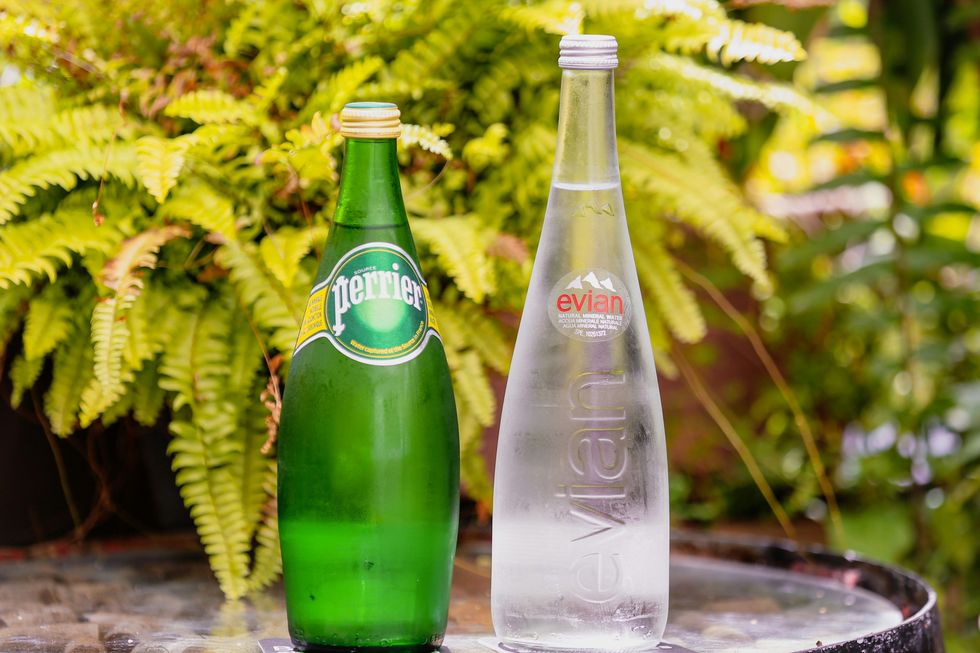
Unsplash
1. Invest in a Fun Water Bottle
There’s a far greater chance that you are going to drink water if you have a water bottle around you. So, cop yourself a cute one — one that will help you to stay motivated. A tumbler that I purchased some time back, just because I thought it was cute as hell, simply says, “Make Better Coochie Decisions” (amen?-LOL). Honestly, that doesn’t just have to apply to sex but how you treat your vagina overall — and that includes making sure that “she” has all of the fluids that she needs.
2. Try Some Sparkling Water or Mineral Water
At this point, I should take stock in Waterloo. It currently is my favorite kind of sparkling water and it has definitely made getting more water into my system easier to do. That’s because I will add some limes to it or a bit of fruit juice to it and that makes drinking water less “meh” for me. Another type of water that has bubbles in it is sparkling mineral water; it can also be beneficial since it contains magnesium, potassium and calcium.

Unsplash
3. Go Halfsies with Your Other Drinks of Choice
Speaking of making some all-natural soda (which is basically what happens when you add juice to sparkling water or sparkling mineral water), you can find yourself drinking more water while consuming less calories if you fill up your glass with half of your favorite fruit juice and half of some sparkling water. More times than not, the juice doesn’t even taste watered down. Try it before you doubt me.
4. Collect Some Infused Water Recipes
I’m forever gonna be a fan of infused water; that’s because it’s water that has fresh fruits and/or veggies in them — and it doesn’t get any healthier than that. Plus, infused water tends to take on the taste of whatever fruits or vegetables that you put into the water (if you let the stuff soak for a couple of hours), so that the water doesn’t taste so boring and bland. Wanna try a few recipes? You can check out some here and here.
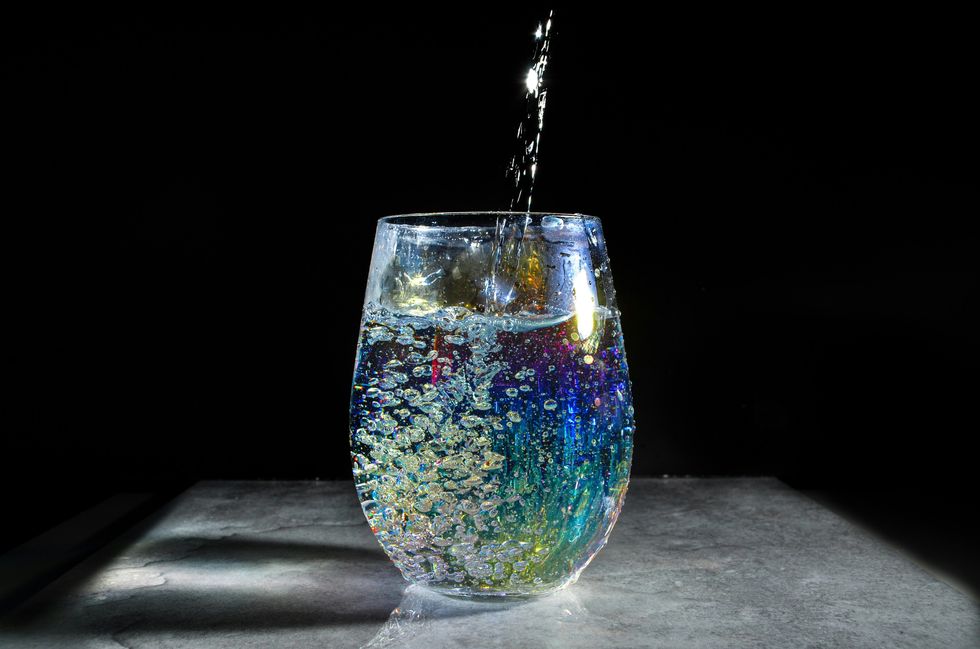
Unsplash
5. Make Slushies Instead of Smoothies
Are you someone who enjoys consuming smoothies? Well, if you want to get more water into your system, how about going with a slushie instead? Although it is true that some smoothies have water as a base, the most bomb ones use milk (or a milk alternative) or yogurt. Slushies, on the other hand, typically go with crushed ice (which is frozen water) instead. That said, some (pardon the pun) cool slushy recipes can be found here, here and here.
6. Use Water As Your “Drink Chaser”
Another great thing about water is it can help to keep you from overeating; it does that by causing you to feel full if you drink it while you are eating. And speaking of calorie-counting, if you don’t want to give up your favorite drink at mealtime, one way to keep from downing 2-3 glasses of it at a time is to use water as your “chaser.” What I mean by that is, after enjoying a glass of your favorite beverage, “chase it down” with a glass of water. That should satisfy your want for what you want without overdoing it.
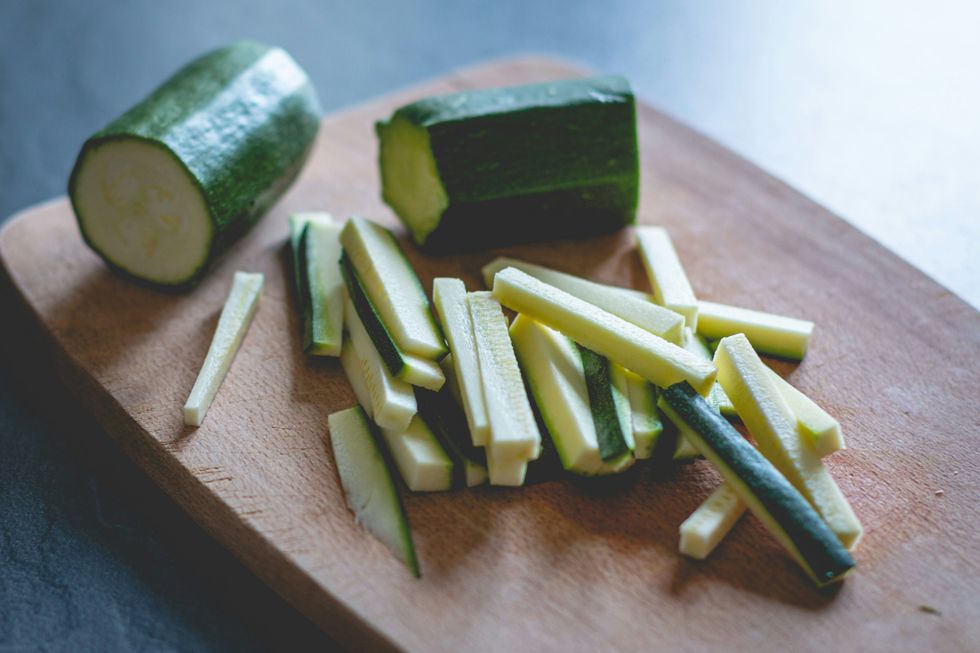
Unsplash
7. Eat Foods That Are High in Water Content
Another way to get more water into your body is to eat foods that have a ton of water in them. Some that top the list include lettuce (96 percent); cucumber (95 percent); zucchini (95 percent); celery (95 percent); strawberries (91 percent); cantaloupe (90 percent), and peaches (89 percent).
8. Have a Ball with Your Ice Cubes
Ice cubes are frozen water, right? That’s why most of us prefer to enjoy our drinks before the ice cubes melt because melted cubes water down whatever it is that we are consuming. And so, for this very reason, add more ice cubes to your drinks — and have fun making them. You can add juice, fruit and/or mint leaves while making your cubes. That way, they are aesthetically-pleasing; plus, they will also add more flavor to your water once the ice cubes actually melt.

Unsplash
9. Add Some Non-Alcohol Cordial to Your Water
If you’re fine with just having a tad of taste in your water, why not add a bit of cordial to it? Cordial is simply a type of tonic, syrup or sweetener (that can contain alcohol or not) that can help to make your water more…interesting. Some alcohol-based cordials can be found here. Some non-alcoholic recipes are located here.
10. Technically, Herbal Tea Counts
Tea is always gonna be my thing. That’s why I’ve penned articles on it for the site like “10 Different Ways Herbal Teas Can Fit Into Your Beauty Regimen”, “10 'Uncommon' Teas You Should Add To Your Stash (& Why)” and “I've Got 10 Teas That Will Help You To Age (Even More) Gracefully” And y’all, if you want to get a lot more water into your system yet a tall glass of water only isn’t your — pardon the pun — cup of tea, make some iced herbal tea instead.
It’s basically water with some herbs tossed in and, if you add some honey or raw organic coconut palm sugar to it, it will be a really sweet treat that will still be extremely hydrating (and very healthy) for you.
Water that is a bit more exciting for you…now. LOL.
Drink up!
Let’s make things inbox official! Sign up for the xoNecole newsletter for love, wellness, career, and exclusive content delivered straight to your inbox.
Featured image by Unsplash



